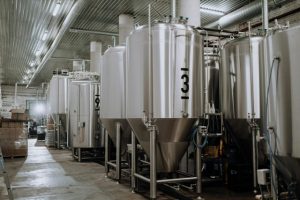Partnership created to help with the safe transportation of patient blood samples

Nottingham-based Aerocom has partnered with Canadian company Motryx to introduce a solution aimed at addressing the safe transportation of patient blood samples.
Each year, thousands of blood samples are rejected by hospital laboratories due to haemolysis, a condition where red blood cells break down, making the samples unusable.
This often occurs due to fluctuations in speed, vibration, and temperature within the hospital’s pneumatic tube systems (PTS), which are commonly used for transporting blood samples from patients to labs.
To tackle this issue, Aerocom (UK) has secured the distribution rights for VitalQC, a product developed by Motryx.
VitalQC serves as a system quality control tool, enabling hospitals to assess whether their PTS lines are operating within parameters that minimise the risk of haemolysis.
Hospitals can deploy VitalQC by sending a VitalVial down each PTS line at specified intervals.
The software analyzes the results, indicating whether conditions are acceptable or if maintenance or troubleshooting of the PTS is necessary.
Aerocom was established in 2000 and is a supplier and installer of pneumatic tube systems in the UK.
Tom Hughes, managing director at Aerocom (UK), said: “We are absolutely delighted to bring this game-changing product to UK market. The issue of haemolysis in patient blood samples is a real problem. It’s worrying. But the alternative to pneumatic tube system transportation is to deliver samples by hand, which is even more costly and time-consuming than retaking rejected samples.
“The full availability of VitalQC to UK hospitals is now set to revolutionise blood sample handling, without losing the huge cost advantages provided by a modern PTS. By introducing this game-changing product, UK hospitals will see immediate benefits in terms of cost savings and time spent taking and testing blood samples.
“But the bottom line in all this is the vast improvement we will see in patient care. The general quality of care will improve due to less time being spent by staff repeating tasks; it will mean patients won’t need to wait as long in wards and A&E departments for their samples to be validated before lab testing; and patients can have more confidence that their test results are likely to be more accurate.”








